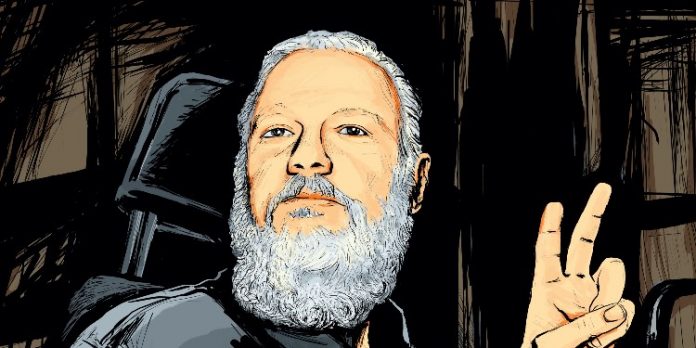Julian Assange, charged by the US for publications exposing war crimes and human rights abuses and facing 175 years in prison, is not going to be extradited, he heard at the Old Bailey on Monday. The US may appeal the decision. Assange is expected to be kept in custody.
Judge Vanessa Baraitser made a judgement on his extradition hearing to the US, where Assange has been charged under the US’s 1917 Espionage Act for “unlawfully obtaining and disclosing classified documents related to the national defence.”
The judge said that the court believes Mr. Assange’s rights would be protected on US soil, and that there’s no evidence suggesting that he wouldn’t get a fair trial in the US.
Vanessa Baraitser accepted that Mr. Assange has remained depressed at the high-security prison of Belmarsh, which has been Assange’s home for the last 20 months. She also pointed out that Assange is at high risk of suicide, and he could become a subject to special administrative measures in US prison. What is more, procedures described by the US would not prevent Assange from finding a way to commit suicide in the US prison.
Assange is expected to be kept in custody, ahead of an appeal expected from the US, district judge Vanessa Baraitser has said. Assange’s lawyers plan to ask for his release from a London prison, AP reports.
The full extradition hearing began in February 2020 and concluded in October at the Central Criminal Court (Old Bailey) in London and lasted for five weeks.
WikiLeaks and its founder Julian Assange are seen as a “hostile intelligence service” (Mike Pompeo) in the US, and the disclosure of around 750,000 classified documents is “strongly condemned” (Hillary Clinton). The US prosecutors stated that “Assange’s actions risked serious harm to United States national security.”
American prosecutors accused Assange of encouraging Chelsea Manning and other potential whistleblowers to steal classified information, as well as collaborating with Anonymous and LulzSec. Allegedly, he helped Manning crack a password hash to a classified US Department of Defence computer.
In the US, Assange faces a maximum sentence of 10 years in prison on each of 17 counts and a maximum of 5 years for conspiracy to commit computer intrusion. So, 175 years in total.
Assange’s no-longer-secret family, human right watchdogs, artists like Ai Weiwei or Vivienne Westwood, a long list of politicians including former Brazilian presidents Luiz Inácio Lula da Silva and Dilma Rousseff, and countless journalists worldwide all oppose the extradition. They fear this would have human rights implications and have a chilling effect on media freedom.
“The mere fact that this case has made it to court, let alone gone on this long, is an historic, large-scale attack on freedom of speech. The US Government should listen to the groundswell of support coming from the mainstream media editorials, NGOs around the world such as Amnesty and Reporters Without Borders and the United Nations, who are all calling for these charges to be dropped. This is a fight that affects each and every person’s right to know and is being fought collectively,” said Kristinn Hrafnsson, editor-in-chief of WikiLeaks.











